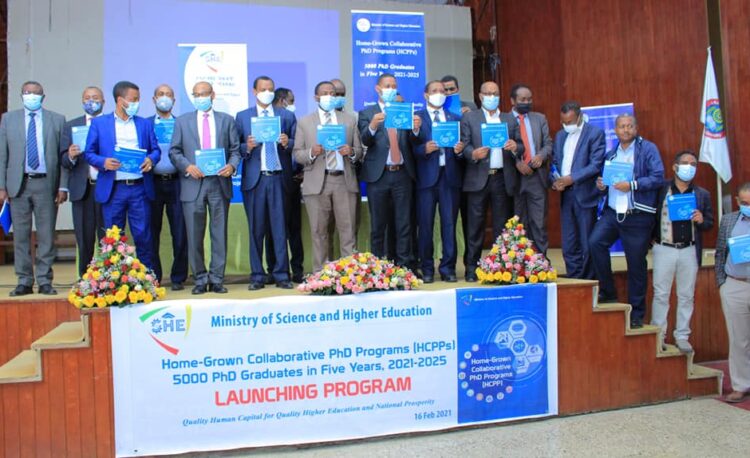A total of 5,000 PhDs by the end of 2025. This is what Ethiopia’s Ministry of Science and Higher Education aims for, according to a five-year project that has recently been unveiled.
This initiative, identified as the Homegrown Collaborative PhD Programs (HCPPs), is partly a reaction to the government’s discontent with the limited expansion of PhD programs and a response to an emerging need for high-level skills driven by the demands of the country’s new economic policy.
PhD training in Ethiopia has shown a significant improvement over the past decade. From a low of 31 doctoral students in 2006-07, the national annual intake reached more than 5,000 candidates in 2020. In addition to local programs, scholarships and paid programs abroad continue to produce additional PhD graduates.
However, achievements have always lagged behind the growing needs for highly trained human resources. The annual graduation rate of PhD candidates remains a challenge.
For instance, in the past two years, only 534 and 567 PhD candidates per year respectively graduated at national level. While the higher education sector would like 30% of staff to have PhDs, only 14% of those who teach at Ethiopian universities currently hold a doctorate.
A total of 67 PhD programs have been identified for training under five broad areas. This includes agriculture, manufacturing, mining, ICT, and tourism.

